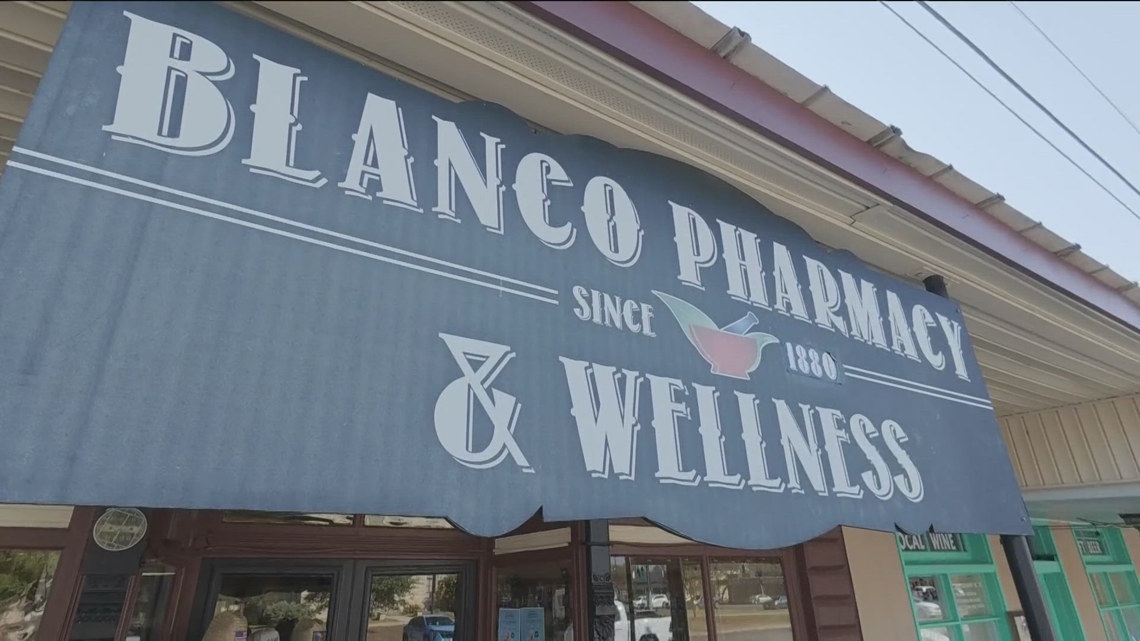“We just want it to to work out to where we can stay in business and serve our community.”
BLANCO COUNTY, Texas — Rural Central Texas pharmacies are struggling to compete with Big Pharma companies, and some hope a new federal program with bring them some relief.
The Rural Transformation Program authorized under the Working Families Tax Act, commonly known as the One Big Beautiful Bill, would help states strengthen rural health care with $50 billion. States have to apply by Nov. 5, and the Texas Pharmacy Association (TPA) is throwing its hat in for a chance at funding.
“It also allows for some really cool opportunities for us to even provide more services, because we know that there will be a lack of access moving forward,” said TPA President-Elect Rannon Ching. “We have to be creative and really think about how we are truly going to care for these folks, and that’s why I think pharmacy is such a great place to start.”
The money will be divvied up in half, with 50% distributed equally among all approved states over five fiscal years, with $100 million given per year and the other 50% given to states that have the most impact on rural communities.
The One Big Beautiful Bill stirred controversy, specifically over health care impacts and steep cuts to Medicaid and the Supplemental Nutritional Assistance (SNAP) program, which is currently being impacted.
“We can’t let the politics cloud our view of the mission, and I think ultimately our mission is to have a healthy, safe population that you can live in,” said Ching.
For local pharmacies, they want help wherever they can get it.
Blanco Pharmacy & Wellness in Blanco has been operating since the 1800s. Siobhan Atchley, who purchased the building roughly 13 years ago, said the issue is Pharmacy Benefit Managers, or PBMs, which are third-party administrators that work with insurance companies to help determine how much medicine cost and how much pharmacies can get reimbursed for providing them.
Atchley said a majority of the time, she is not getting reimbursed for dispensing medicine, services or counseling. On top of that, PBMs are steering customers to their own pharmacies, which she said negatively impacts customers who are elderly or homebound.
“We just want it to to work out to where we can stay in business and serve our community, so that’s really what matters to us, is providing the health care to these people so that they don’t end up in the hospital,” said Atchley.

